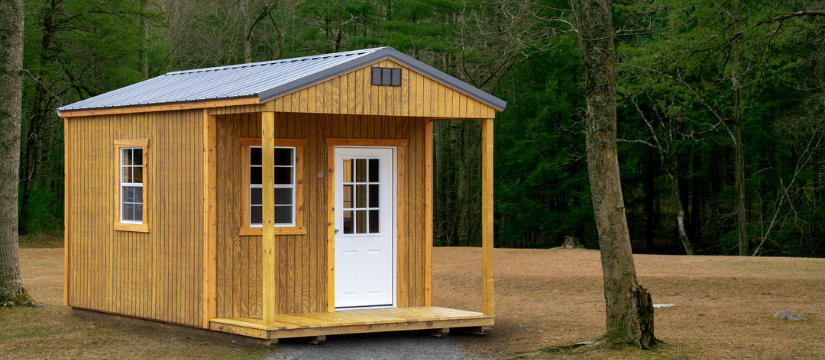In the era of increasing environmental awareness and the need for sustainable living, portable cabins have emerged as an excellent solution that not only offers convenience and flexibility but also promotes eco-friendly practices. These compact yet versatile structures provide a range of sustainable benefits for individuals seeking to minimize their ecological footprint. In this blog post, we will explore how portable cabins contribute to eco-friendly living and why they are a sustainable choice. Let’s dive in!
1- Use of Resources:
Portable cabins are designed with efficiency in mind. They are often constructed using sustainable materials, such as reclaimed wood, recycled steel, or eco-friendly composites. By using these materials, the demand for new resources is reduced, minimizing environmental impact. Additionally, the modular design of portable cabins allows for optimal utilization of space, reducing wastage and maximizing energy efficiency.
2- Minimal Site Disturbance:
Unlike traditional construction, portable cabins require minimal site preparation and disturbance. They can be installed on existing foundations or easily placed on level ground, eliminating the need for extensive excavation or alterations to the natural landscape. This minimal site disturbance helps preserve the ecosystem, protecting natural habitats and ecosystems.
3- Energy Efficiency:
Portable cabins are built with energy efficiency in mind. They often come equipped with eco-friendly features such as energy-efficient insulation, LED lighting, and low-flow fixtures. These elements help reduce energy consumption and minimize the carbon footprint associated with heating, cooling, and electricity usage. Additionally, portable cabins can incorporate solar panels or wind turbines to generate clean, renewable energy, further reducing reliance on non-renewable energy sources.
4- Reduced Waste and Environmental Impact:
The construction of traditional homes generates a significant amount of waste, from excess building materials to construction debris. Portable cabins, on the other hand, are fabricated in controlled environments, resulting in minimal waste production. Moreover, these structures can be easily disassembled and relocated, ensuring that they leave minimal impact on the surrounding environment.
5- Water Conservation:
The conservation of water is a crucial element of sustainable living. Portable cabins often include water-saving fixtures, such as low-flow toilets and faucets, as well as efficient water heating systems. These features help minimize water usage, reducing strain on local water resources and promoting responsible water management.
6- Off-Grid Options:
For those seeking a self-sustainable lifestyle, some portable cabins offer off-grid capabilities. These cabins can incorporate rainwater harvesting systems, composting toilets, and renewable energy sources to achieve a greater level of independence from traditional utilities. Off-grid living allows individuals to reduce their reliance on centralized infrastructure, contributing to a more sustainable and resilient way of life.
Conclusion:
Portable cabins offer a practical and sustainable solution for eco-conscious individuals. By utilizing eco-friendly materials, promoting energy efficiency, minimizing site disturbance, and incorporating sustainable features, these structures enable individuals to embrace eco-friendly living without sacrificing comfort or convenience. Whether it’s for a temporary dwelling, a vacation retreat, or a permanent home, portable cabins provide an opportunity to reduce environmental impact and make a positive contribution towards a greener future.
Embrace the sustainable choice of portable cabins and embark on a journey towards eco-friendly living. By working together, we can forge a path toward a more sustainable and harmonious world.


